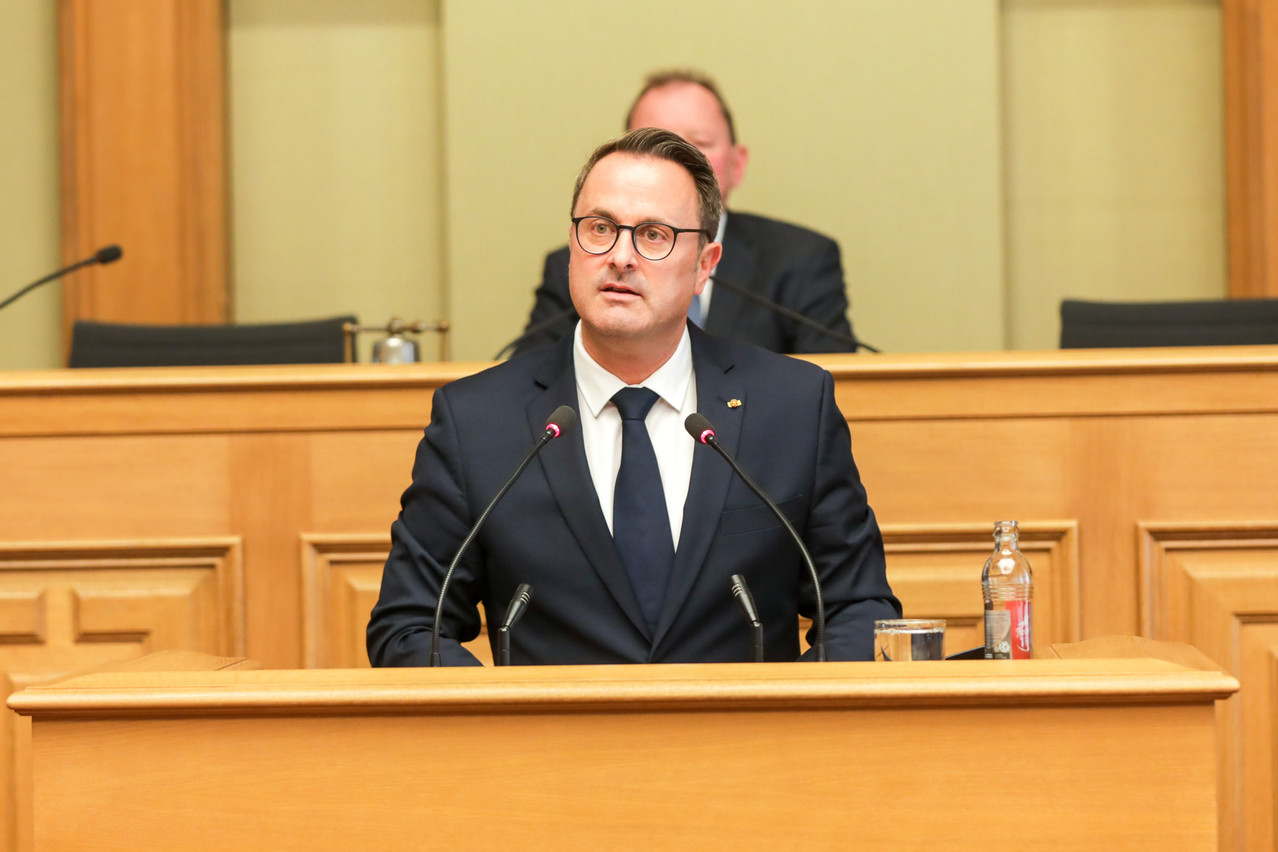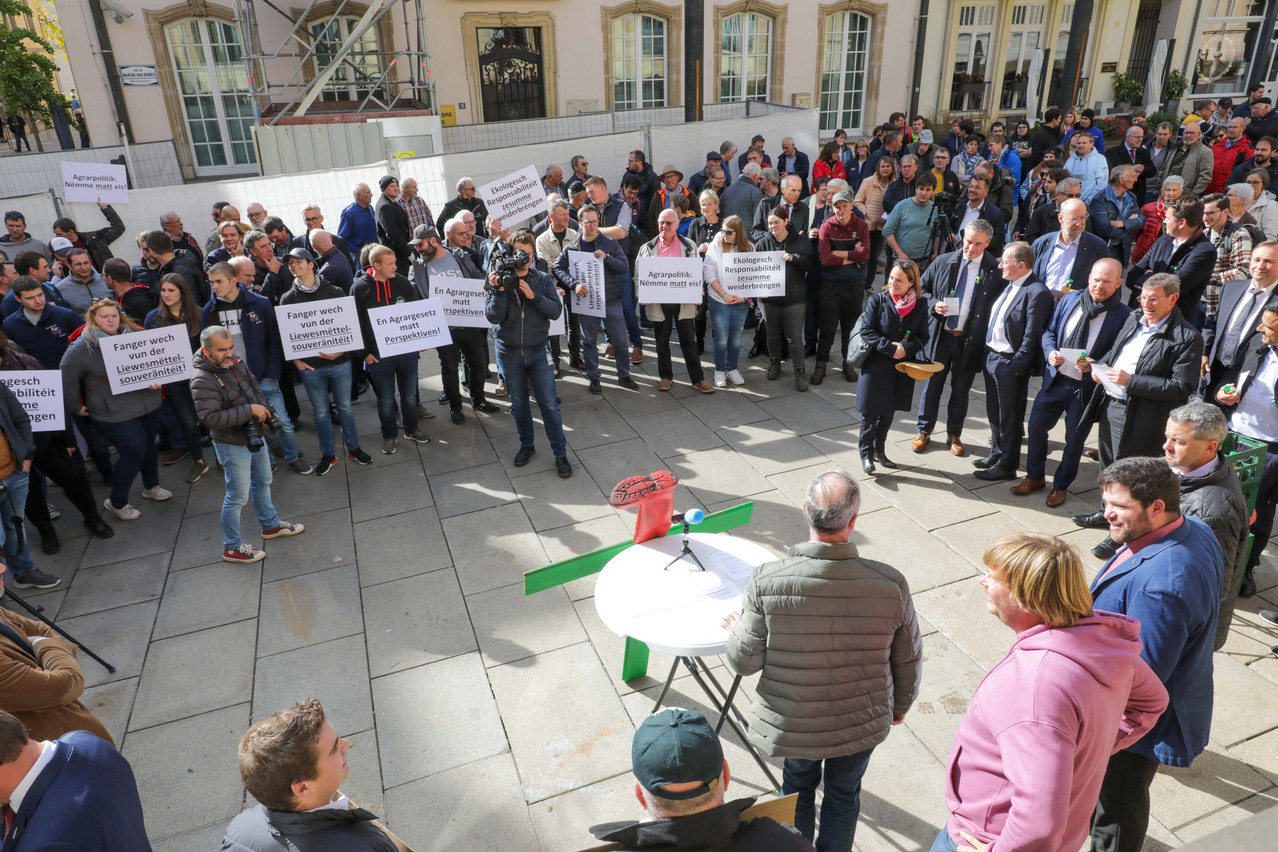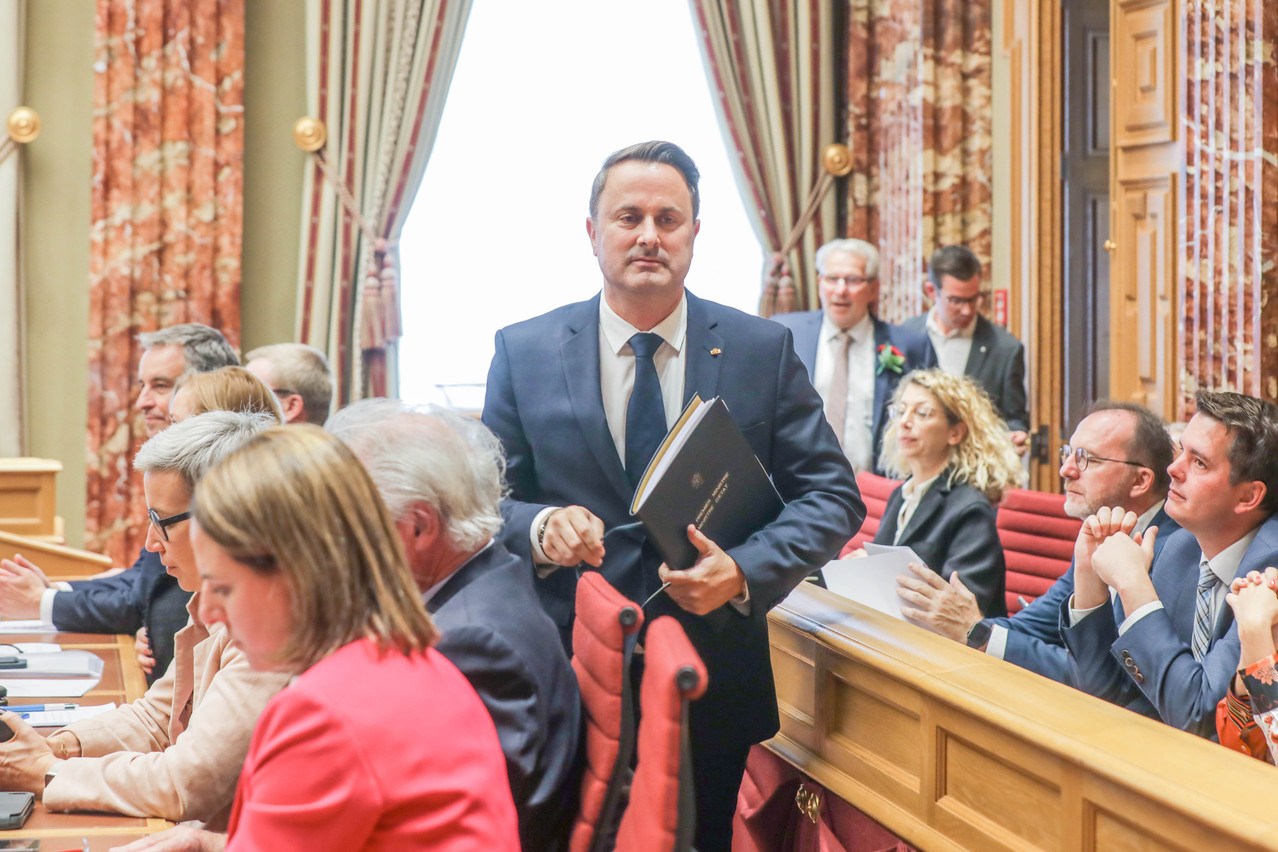In a speech that was always going to be something akin to the unofficial launch of an election campaign, Xavier Bettel’s State of the Nation address on Tuesday afternoon was surprisingly scant on unveiling new policy but more like a call to arms.
“This government has taken its responsibilities on several occasions in recent years,” Bettel told parliament. “We are ready to take our responsibilities today, and also tomorrow.”
But that responsibility, in the current legislature, does not include introducing the major tax reform that was promised in the government’s declaration upon taking office in 2018, .
We are keeping the promises we have made to the people. But we are doing so responsibly, without jeopardising our long-term future and prosperity.
But Bettel did prefaced the to be made by finance minister (DP) on Wednesday morning. “Yes, we can and will make our tax system more modern and fairer. Yes, we also need targeted tax relief that reaches the middle class. And yes, the government is working on concrete tax measures,” Bettel said. He insisted that the government not “shirking” its responsibility by failing to introduce tax reform. “On the contrary, we are keeping the promises we have made to the people. But we are doing so responsibly, without jeopardising our long-term future and prosperity.” Maintaining Luxembourg’s precious Triple A rating is still a central pillar of fiscal policy.
The prime minister did run through the major challenges that the country currently faces – soaring energy prices and the cost of living as an impact from the war in Ukraine, the housing crisis and the broader topic of the environment. But coming just a few weeks after what he had called “historic” and days after details of and rental reforms were announced, and the day before details of the 2023 budget, there was not much left in Bettel’s armoury.
“The government has set itself three main priorities,” Bettel said. “Fighting inflation, maintaining purchasing power and ensuring job security.”
We are on the brink of a global economic crisis that could dwarf the financial crisis of the last decade.
"We are living in extraordinary times. Since March 2020, our world has been turned upside down,” a visibly emotional Bettel told assembled MPs and the media in the gallery. “After more than two long years of pandemic, the Russian president is plunging humanity into the next crisis with an inhuman war. It is the worst crisis that our country, indeed the whole European continent, has experienced since the Second World War. Not only are we experiencing a war on our doorstep, but we are also facing historic inflation and energy shortages. We are on the brink of a global economic crisis that could dwarf the financial crisis of the last decade.”
But the prime minister was adamant that the grand duchy would continue to stand by Ukraine. “We do not give in to blackmail. Especially not from autocrats who want to destroy our free and peaceful Europe.”

"This government has proven more than once that we are holding the rudder firmly, even in stormy times, and that we manage to navigate Luxembourg through crises," the prime minister said. Luc Deflorenne
Obligatory solar panels on new builds
However, when Bettel mentioned the energy crisis and the efforts being made, he stated that "by 2026, 10% of the annual electricity consumption in public buildings should be covered by their own photovoltaic installations. The state must set a good example.” A move is being considered to make it obligatory to install solar panels on all new buildings. In addition, from 1 January 2023, the VAT rate for new photovoltaic installations will be reduced to 3% and the degressive nature of allowances will be suspended. If the operators of photovoltaic systems use their electricity themselves or as part of an energy community, they will receive an additional 25% subsidy under the so-called “Klimabonus“ scheme.
€5.5 billion in direct and indirect aid
"This government has proved more than once that we hold the rudder firmly, even in stormy times, and that we manage to navigate Luxembourg through the crises," Bettel stated. "These crises make us all tired. But we will not be discouraged. The future belongs to the brave. We stick together when we have to. This is what makes our country. That's what characterises Luxembourgers."
In his speech, Xavier Bettel recalled the arrival of 4,100 Ukrainian refugees the €72m worth of military equipment sent to Ukraine - 16% of the Grand Duchy's current defence budget, the recent cyber-attack experienced by Creos, the Klima-Biergerrot (citizens’ climate council) and the . "€2.5 bn to financially support those who suffer most from the current situation. I cannot stress enough what a huge achievement this €2.5bn is for a country like Luxembourg. Since the pandemic, we have provided €5.5bn in direct and indirect aid to individuals and companies. This extraordinary amount is not only impressive in international comparison, but can be considered unprecedented in Europe."

Around 150 people heeded a call from the country's three major agricultural unions and young farmers to stage a demonstration in front of the Chamber of Deputies on Tuesday 11 October. (Photo: Luc Deflorenne)
Farmers’ protest
On the sidelines of the state of the nation address, the country's three major agricultural unions (the Bauer-Allianz, the Central Farmers' Union and the FLB), as well as the two young farmers' organisations, demonstrated in front of the Chamber of Deputies. A crowd of about 150 demanded, among other things, an agricultural summit.
The prime minister replied that the government is ready to enter into a constructive dialogue with (the farmers). “Before the summer, the government adopted the draft of the new agricultural law,” Bettel said. “More than €800m from the national and European budget will be allocated to Luxembourg's agricultural businesses in the coming years. About 40% of the annual expenditure is reserved for climate and biodiversity support. With these investments, we are making agriculture an active partner in climate policy, fairly remunerated for its service in the interest of the general public," Bettel insisted.


